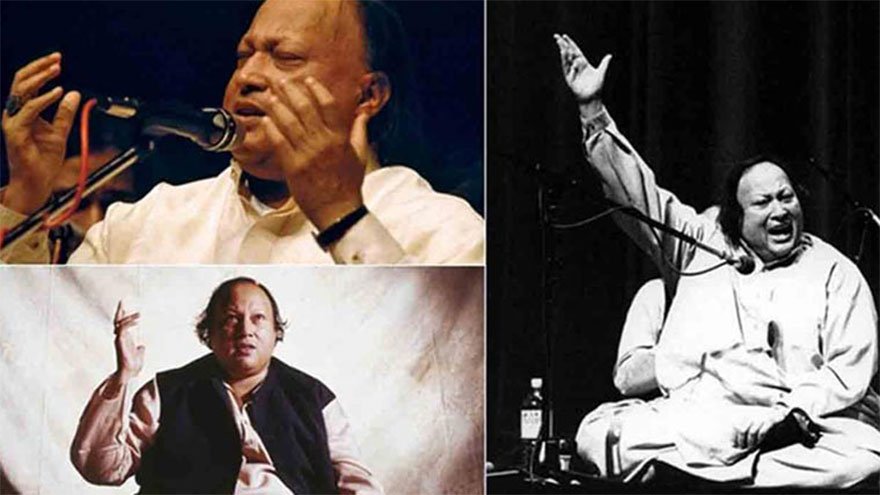
Remembering Nusrat Fateh Ali Khan: 28 Years Since the Passing of the Qawwali Maestro
Today marks the 28th death anniversary of Nusrat Fateh Ali Khan, the legendary Pakistani musician and Qawwali singer whose influence continues to reverberate across the world. Known as the “Shahenshah-e-Qawwali” or “King of Kings of Qawwali,” Nusrat Fateh Ali Khan is celebrated not only for his extraordinary vocal abilities but also for his role in introducing Sufi music and Qawwali to audiences far beyond the borders of Pakistan.
Early Life and Musical Heritage
Born on October 13, 1948, in Faisalabad, Nusrat Fateh Ali Khan came from a distinguished family of musicians. He was the fifth child and the first son of Fateh Ali Khan, a renowned musician, vocalist, instrumentalist, and Qawwal. Growing up in a household steeped in the 600-year-old tradition of Qawwali, Nusrat was exposed to the intricacies of classical music and spiritual poetry from an early age. His lineage and upbringing played a crucial role in shaping his future as one of the greatest Qawwali singers ever recorded.
Vocal Prowess and Unique Style
Nusrat Fateh Ali Khan’s voice remains a benchmark for excellence. Possessing a vocal range that extended across six octaves, he could perform with incredible intensity and stamina for several hours, captivating audiences with every note. His interpretations of spiritual and devotional poetry brought a renewed vigor to Qawwali, as he seamlessly blended traditional forms with contemporary sensibilities. This powerful combination made him stand out in a crowded musical landscape and earned him admiration from critics and fans alike.
Taking Qawwali Global
Nusrat Fateh Ali Khan is widely credited with bringing Qawwali and Sufi music to international prominence. His innovative approach and willingness to experiment opened new pathways for this ancient art form. He collaborated with Indian music composer A R Rahman and lyricist Javed Akhtar, contributing to cross-border musical projects that expanded his reach in South Asia. His work with British musician Peter Gabriel on the soundtrack of “The Last Temptation of Christ” in 1985 was instrumental in introducing Qawwali to Western audiences, further cementing his status as a global icon.
Record-Breaking Achievements
According to the Guinness Book of World Records, Nusrat Fateh Ali Khan holds the distinction of having the largest recorded output by any Qawwali artist, with a total of 125 albums as of 2001. This prolific recording career is a testament to his dedication, creativity, and tireless efforts to preserve and expand the art of Qawwali. His music transcends linguistic and cultural barriers, resonating with people from all walks of life.
Final Days and Legacy
In August 1997, Nusrat Fateh Ali Khan was taken ill with kidney and liver failure while in London. He was admitted to Cromwell Hospital, where he tragically passed away from a sudden cardiac arrest on August 16, 1997, at the age of 48. His untimely death shocked fans around the world and marked the end of an era in South Asian music.
Even decades after his passing, Nusrat Fateh Ali Khan’s legacy continues to inspire new generations of musicians and music lovers. His recordings are still celebrated for their spiritual depth, technical mastery, and emotional resonance, ensuring that the voice of the King of Kings of Qawwali will never be forgotten.







